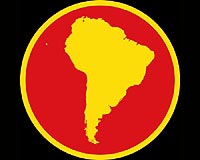| . |  |
. |
London (AFP) Sept 15, 2009 The United States was dealt a major blow by the world financial crisis but can maintain its global influence if it works more cooperatively with other countries, a British study said Tuesday. The International Institute for Strategic Studies (IISS) said President Barack Obama is already pursuing a strategy of "mini-lateralism" -- in contrast to the perceived unilateralism of his predecessor, but short of full-blooded UN-style multilateralism. "There will be limits to the ability of the US to lead an ambitious foreign policy agenda, and meeting its current challenges will involve cultivating like-minded attitudes among key regional players," IISS chief executive John Chipman said. He cited the increasing use of the G20 to make decisions, ad hoc meetings on climate change and a summit of UN Security Council member states on nuclear non-proliferation later this month as examples of this approach. "As time passes, the limitations on Western and US foreign and security policy may become more evident," Chipman added at the launch of the think tank's latest strategic review in London. "Domestically, Obama may have campaigned on the theme 'yes we can'; internationally he may increasingly have to argue: 'no we can't'." Concerns about declining US influence pre-dated the global downturn, following eight years of unilateralism under former president George W. Bush and the rise of newly assertive powers such as China and Russia. The financial crisis has reduced Washington's economic clout but the IISS said it should ultimately confirm its position as the world's main power by showing the huge resources it has. "The vivid message of the financial crisis... was that America continued to be of vital importance to other countries, including its putative rivals as pre-eminent powers," the IISS said. By contrast, the downturn exposed how dependent main rival China is on exports and how closely its economy is linked to the United States. China holds about 700 billion dollars of US Treasury debt -- ensuring it has a significant stake in maintaining the value of US investments and the dollar. While Beijing maintains "substantial" military, political and economic ambitions, the report notes that it is US rather than China-led partnerships that continue to dominate in the Asia-Pacific region. "It remains the case that for most international issues, the United States has greater opportunities to gather coalitions around its point of view than does China," it said. The IISS said the doctrine of "mini-lateralism" could be extended. Russia, India, Iran and China should be brought more into debates about the future of Afghanistan following the US-led invasion in 2001, it said, to give the internal Afghan reconciliation process "an international cushion". Likewise it said that involving Arab states in talks on Iran's disputed nuclear drive, which are currently held between Britain, France, Germany, the United States, China and Russia, would be "strategically advantageous". On North Korea's nuclear drive, the IISS suggested "more direct, if discreet" talks between China, the United States, Japan, South Korea and Russia to prepare for any possible collapse of the communist state. "If the consequences of a collapsed North Korea and a unified peninsula appeared less worrying to China, Beijing might be persuaded to impose the sort of sanctions or pressure on the North that could persuade it to concede its nuclear position," Chipman said. Share This Article With Planet Earth
Related Links Learn about the Superpowers of the 21st Century at SpaceWar.com Learn about nuclear weapons doctrine and defense at SpaceWar.com
 South America meeting to scrutinize US-Colombia pact
South America meeting to scrutinize US-Colombia pactQuito (AFP) Sept 14, 2009 A US deal to use Colombian bases is to be scrutinized at a regional meeting on Tuesday of South America's defense and foreign ministers in Ecuador amid fears the region risks armed instability. The talks extend concerns over the US-Colombia plan already expressed at a Union of South American Nations (Unasur) summit last month, while including other defense pacts at Bogota's insistence. ... read more |
|
| The content herein, unless otherwise known to be public domain, are Copyright 1995-2009 - SpaceDaily. AFP and UPI Wire Stories are copyright Agence France-Presse and United Press International. ESA Portal Reports are copyright European Space Agency. All NASA sourced material is public domain. Additional copyrights may apply in whole or part to other bona fide parties. Advertising does not imply endorsement,agreement or approval of any opinions, statements or information provided by SpaceDaily on any Web page published or hosted by SpaceDaily. Privacy Statement |